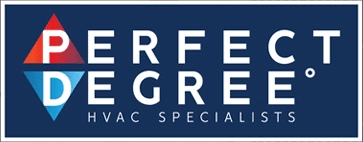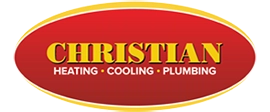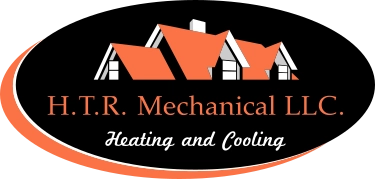Give us a call now for an immediate match with a local pro.
Click to Call(833) 824-3371(833) 824-3371
Last Updated: February 25, 2025
According to the U.S. Department of Energy, about 55% of the energy used in American homes is used for heating and cooling. Since cooling and heating represent such a significant chunk of your utility bills, you'll want to make sure the HVAC system in your Philadelphia home is functioning optimally.
Our guide to Philadelphia's top HVAC companies can help you save money by getting your HVAC system repaired, installed or replaced by the right person for the right price.

Our Rating
User Rating
Prompt service delivery
Reliable customer support
Informative resources
Free quotes
Clear pricing policy
Services Offered

Our Rating
User Rating
Prompt service delivery
Free quotes
Clear pricing policy
Informative resources
Reliable customer support
Services Offered

Our Rating
User Rating
Informative resources
Clear pricing policy
Reliable customer support
Free quotes
Services Offered

Our Rating
User Rating
Reliable customer support
Clear pricing policy
Informative resources
Free quotes
Services Offered

Our Rating
User Rating
Reliable customer support
Free quotes
Informative resources
Clear pricing policy
Services Offered

Our Rating
User Rating
Reliable customer support
Informative resources
Free quotes
Clear pricing policy
Services Offered

Our Rating
User Rating
Informative resources
Prompt service delivery
Clear pricing policy
Reliable customer support
Free quotes
Services Offered

Our Rating
User Rating
Informative resources
Free quotes
Reliable customer support
Prompt service delivery
Clear pricing policy
Services Offered

Our Rating
User Rating
Prompt service delivery
Free quotes
Reliable customer support
Services Offered

Our Rating
User Rating
Informative resources
Clear pricing policy
Reliable customer support
Free quotes
Services Offered
Today's Homeowner looks at dozens of datapoints on hvac companies to come up with our data-driven rankings. It's not possible for a company to pay for preferential treatment in our rankings. We look at the following key factors in determining who should top our list:
An HVAC system that's malfunctioning or past its lifespan likely needs professional attention for maintenance or replacement. Watch for these signs that your system needs service:
If you notice any of these HVAC issues, you should have a technician inspect your system. A local professional can detect problems and determine whether fixing or replacing your HVAC unit is the correct solution.
What you pay for HVAC installation or maintenance depends on your system style. Common HVAC unit styles include the following:
HVAC maintenance costs vary based on the specific services required. HVAC systems can be complex and potentially require several different services. Costs for typical jobs are as follows:
| HVAC Unit Type | Cost | |
|---|---|---|
| Split | $2,022-$5,155 | |
| Hybrid Split | $4,098-$7,549 | |
| Heat Pump | $3,173-$32,329 | |
| Packaged Heating and Air | $266-$443 |
HVAC system repairs and replacements are important, but can be expensive. Luckily, there are steps homeowners can take to reduce wear and tear on their system and lower future maintenance needs.
| Service | Cost | |
|---|---|---|
| Filter Replacement | $66-$177 | |
| Condensor Cleaning | $1,328-$3,983 | |
| Thermostat Repair | $89-$221 | |
| Ductwork Cleaning | $425-$1,062 |
It's important to know what makes a good HVAC company. A properly licensed contractor with the right experience will give you confidence that they can maintain your HVAC system properly, providing you with effective heating and cooling for your home.
Contact at least three HVAC contractors for quotes. Describe your issues and schedule an in-person inspection if possible. Compare companies' diagnoses, suggested repairs, estimated costs, timeframes, and warranties. Avoid providers that pressure you or demand upfront payment.
When selecting an HVAC provider, choose one with technicians that have the proper training, licenses, and experience. HVAC contractors in all states must obtain a Section 608 Technician Certification from the Environmental Protection Agency (EPA). This certification is mandatory for any individual who helps "maintain, service, repair or dispose of equipment that could release refrigerants into the atmosphere." Contractors must pass an exam (the type of exam depends on the type of equipment they intend to work with) to be certified by the EPA. All other licensing requirements are handled at the state level.
Pennsylvania doesn't have state-level requirements for general HVAC licensing; however, there may be local licensing requirements or certifications required for specific projects. You can also confirm whether a contracting company has a valid Pennsylvania business license. You should also check a provider's reviews and complaints with organizations such as Google Reviews, Yelp, and the Better Business Bureau (BBB). Choose a company with positive reviews and a history of good customer service.
It’s important to know what the work process is going to look like. For HVAC repairs, the company should detail the exact parts that need replacement and why. Get confirmation that your technician will clean and test your system afterward to guarantee everything is working correctly. When replacing your HVAC, ask the provider to explain the new features, energy efficiency, model, estimated installation time, and brand. Before signing a contract, make sure you understand the process your provider will use to size the new HVAC system appropriately for your home and what the price will be.
A reputable HVAC company will back its repair work and installations with a warranty. The longer and more comprehensive the coverage terms, the better. Carefully compare the fine print between contractors and choose the company that provides the greatest protection at a reasonable price.
Always get quotes for HVAC service in writing before committing to a provider. An itemized quote should cover both labor and materials. Make sure you understand all terms before signing a contract.
Typically, your HVAC system should be inspected twice a year. After that inspection, your technician will tell you what, if any, services are needed. You should also have an inspection if you start to notice any issues, like strange noises, unusual smells, or leaks. If you have ductwork in your home, it should be serviced every few years.
The best times of the year to have an HVAC inspection are during the spring and fall. Technicians are less busy during these times, which makes it easier to get an appointment. This also ensures that your system is ready for the summer and winter, the times of the year when it gets the most use.
You can save energy throughout the year by making it easier for your HVAC system to maintain the temperature of your home. Always keep your thermostat as close to the outside temperature as possible, and avoid making drastic changes — adjust it only a few degrees at once. You might also consider purchasing a smart thermostat.
It takes around one to three days to have an HVAC system installed or replaced. If you only need a furnace or a single air conditioning unit, this may take between half a day and two days. This timeline will be determined by the size of your home, the accessibility of your system, and any new issues your technician uncovers.
For a 2,000-square-foot home, try to purchase a furnace that's between 50,000 and 80,000 BTUs (British thermal units).
For a 2,000-square-foot home, you'll also want an air conditioning unit with between 2.5 and 5 tons of capacity. Generally, if your home is over 1,000 square feet, central air will be more effective than window air conditioning units.
Usually, HVAC financing is through a third-party lender. If your HVAC company doesn't offer financing, you might consider taking out your own loan. Be sure to speak with a financial advisor and your HVAC company to determine what options are available to you and appropriate for your situation.
There are a number of ways you can make your HVAC system more energy-efficient:
